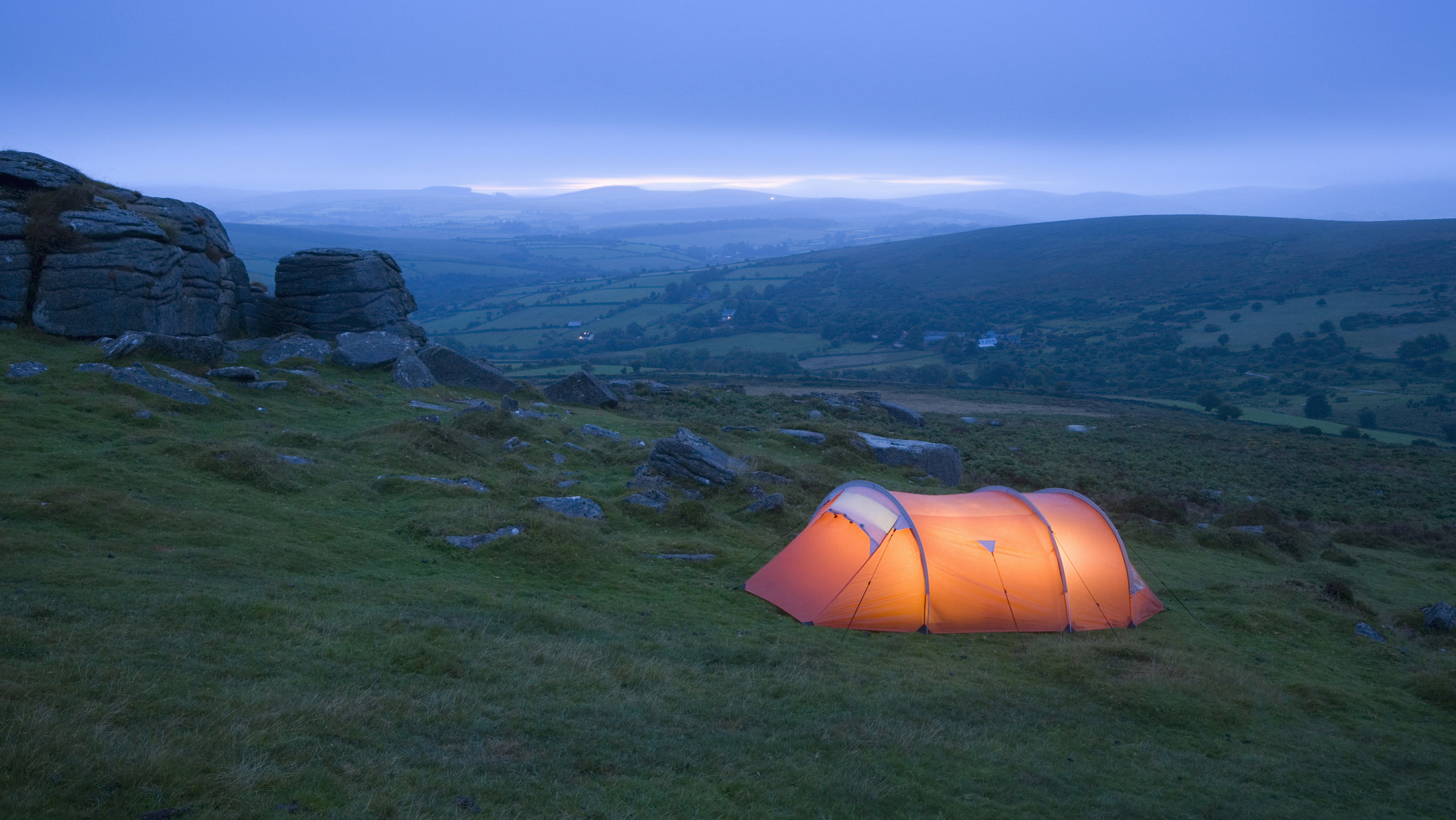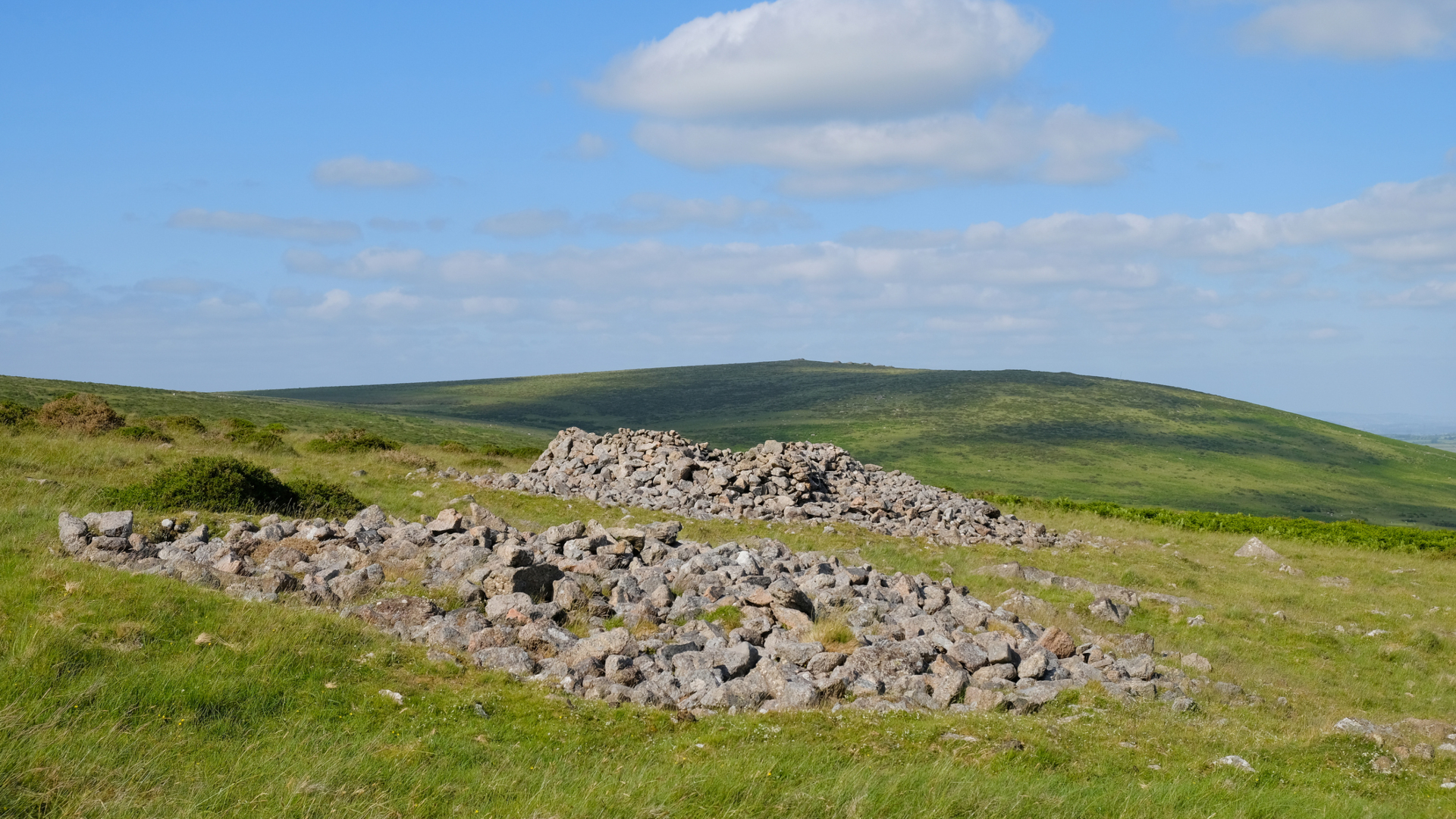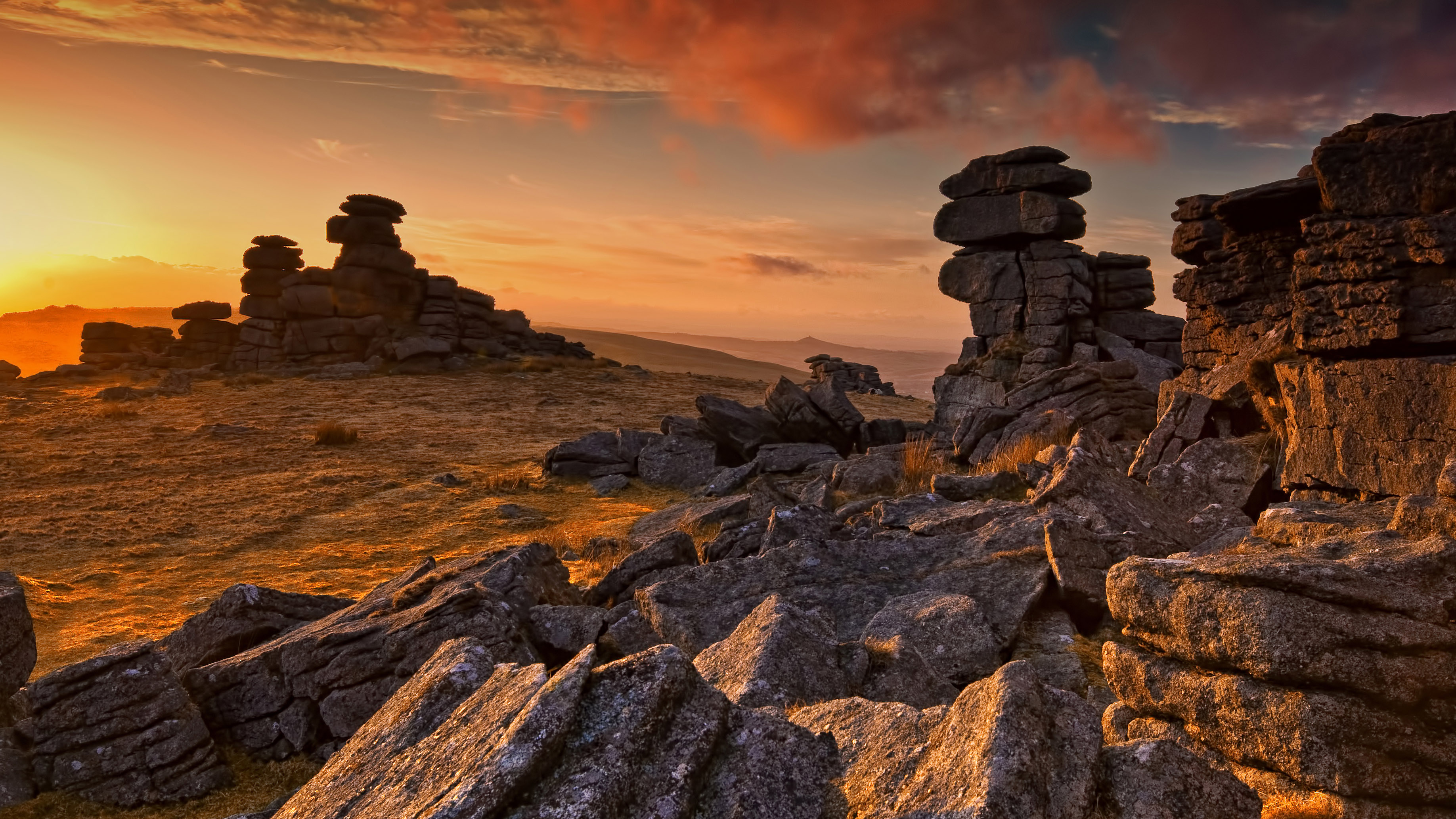Why Dartmoor’s wild camping ban matters for you
Campers just lost their last remaining space to wild camp in England and Wales, but they’re not going down without a fight

All the latest inspiration, tips and guides to help you plan your next Advnture!
You are now subscribed
Your newsletter sign-up was successful
There are few things outdoor adventurers in Britain love more than walking for hours across the windswept landscape of Dartmoor, pitching a tent at the end of the day and sleeping under the stars, far from the city lights. But now, doing so could land you in jail and set you back as much as £2,500.
On Friday, January 13, Chancellor of the High Court Julian Flaux ruled that, despite decades of use, campers have no legal right to wild camp on a part of Dartmoor owned by hedge fund manager Alexander Darwall without his permission. The judgement effectively strips UK campers and backpackers of the last remaining space in England and neighboring Wales where they were free to wild camp.
Dartmoor is an upland area in southern Devon that is of ecological, geological and environmental significance. It covers 368 square miles of moorland and exposed granite outcrops known as Tors. It’s long been used as a location for outward bounds expeditions and youth groups including an annual challenge that draws teenagers from the southwest of England each year who navigate routes of up to 55 miles, known as the Ten Tors.
Pat Kinsella, a resident of Devon and author of the book Devon: 40 coast and country walks which details walks on Dartmoor, proposes that the judgment may have disastrous consequences for the mental health of those who have relied on this space.
“At a time when the mental health benefits of time spent outside are widely recognised, and access to green spaces is literally being encouraged by the NHS and prescribed by doctors, this is a massive backwards step.”

Though much of Dartmoor is managed by Dartmoor National Park, over half of it is privately owned. Darwall, who bought the Blachford estate in 2013 with his wife Diana and uses it for holiday rentals, deer stalking and pheasant shooting, launched his petition back in October 2022. Flaux reached his decision based on an interpretation of camping being non-recreational, something Kinsella calls ridiculous.
“If camping isn’t a recreational pursuit, what is it? This will, no doubt, form the crux of an appeal – but the National Park should not have to spend their limited resources mounting such an appeal in the first place, in response to the selfish actions of a millionaire who wants to take small groups of rich people shooting on land that ought to be open to all.”
All the latest inspiration, tips and guides to help you plan your next Advnture!
Further, Kinsella notes that the timing of this judgment – as the UK teeters towards a seemingly inevitable recession – couldn’t be worse for those non-millionaires who are hardest hit by skyrocketing prices.
“For the High Court to make this ruling now, when the soaring prices of everything are putting many recreational activities out of the reach of many people, is frankly obscene.”
Though Flaux stated that it was “apparent” some damage had been caused by wild campers that was of environmental concern, no details of such damage are given, and Kinsella says it’s clear that this case has nothing to do with protecting the precious resources of Dartmoor.
“It has everything to do with excluding people from a wild area that has been enjoyed by many generations of walkers, youth groups, wildlife spotters, stargazers, mountain bikers and campers. It will impact everyone from school children hoping to do expeditions or the Ten Tors Challenge, to families, friends and individuals who want to respectfully spend some time outdoors.”
Supporting this opinion is that fact that, while Dartmoor has been widely used by hikers and campers, access has in fact long been restricted – with principles of Leave No Trace in order to prevent damage to the land, a ban on fires, and a limit of two nights of camping in one place.

Friday’s ruling doesn’t mark the first time Darwall and his wife have made headlines for restricting public access to wild spaces. Back in 2018, it was reported that they’d started charging people £10 per day to go gold panning on their Scottish estate. It’s worth noting that he’s not known as a man of scrupulous morals either – his website shows he has been the recipient of European funding to maintain his land, while the Electoral Commission shows he has also given donations to the UK Independence Party, who led the charge to take Britain out of Europe.
Over the weekend, people were already protesting the ruling by camping on Dartmoor, but as Kinsella points out this judgment has needlessly criminalized them. And, while people can and do discreetly wild camp, albeit illegally, in many parts of England and Wales, the judgment will likely deter many from accessing the outdoors who might otherwise have done so.
It’s clear that, as in many such cases, one of the main issues at stake is that this case could become a precedent for other UK landowners to remove campers from their land – something that Kinsella hopes will spur people into action.
“I hope this case becomes a catalyst for that whole sorry state of affairs to be reassessed. We should not meekly accept the fact that fences and laws prevent us from respectfully exploring and enjoying the natural environment that surrounds us. I encourage people to join the fightback, to support and get involved with groups such as the Right to Roam, who are already organising some acts of defiance for next weekend.”
- Best one-person tents: solo shelters for backpacking and festivals
Julia Clarke is a staff writer for Advnture.com and the author of the book Restorative Yoga for Beginners. She loves to explore mountains on foot, bike, skis and belay and then recover on the the yoga mat. Julia graduated with a degree in journalism in 2004 and spent eight years working as a radio presenter in Kansas City, Vermont, Boston and New York City before discovering the joys of the Rocky Mountains. She then detoured west to Colorado and enjoyed 11 years teaching yoga in Vail before returning to her hometown of Glasgow, Scotland in 2020 to focus on family and writing.

